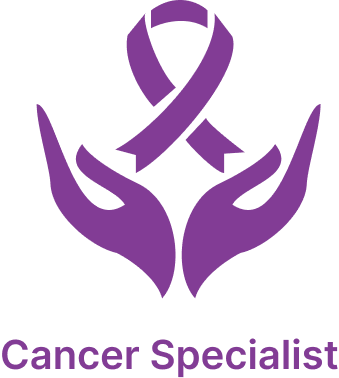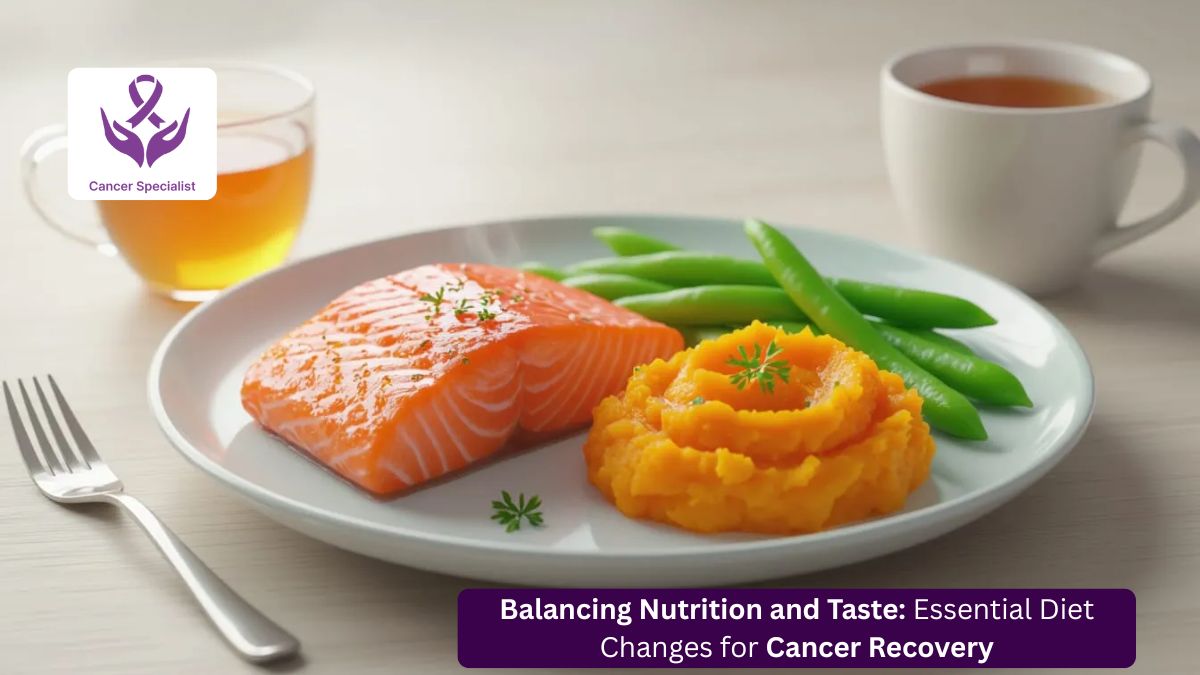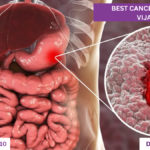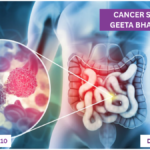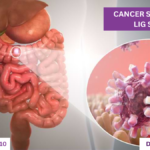Table of Contents
ToggleCancer Recovery Diet Tips: Flavorful and Nutritious Eating Made Easy
Cancer recovery is a challenging journey that demands a holistic approach, with nutrition playing a pivotal role in healing and restoring strength. However, treatment side effects like loss of taste, nausea, and appetite changes often make eating a struggle. Balancing taste and nutrition becomes essential to ensure patients not only consume adequate nutrients but also enjoy their meals. This blog explores practical diet modifications for cancer recovery, emphasizing the importance of this balance, and highlights insights from renowned cancer surgeon Dr. Suyash Agrawal.
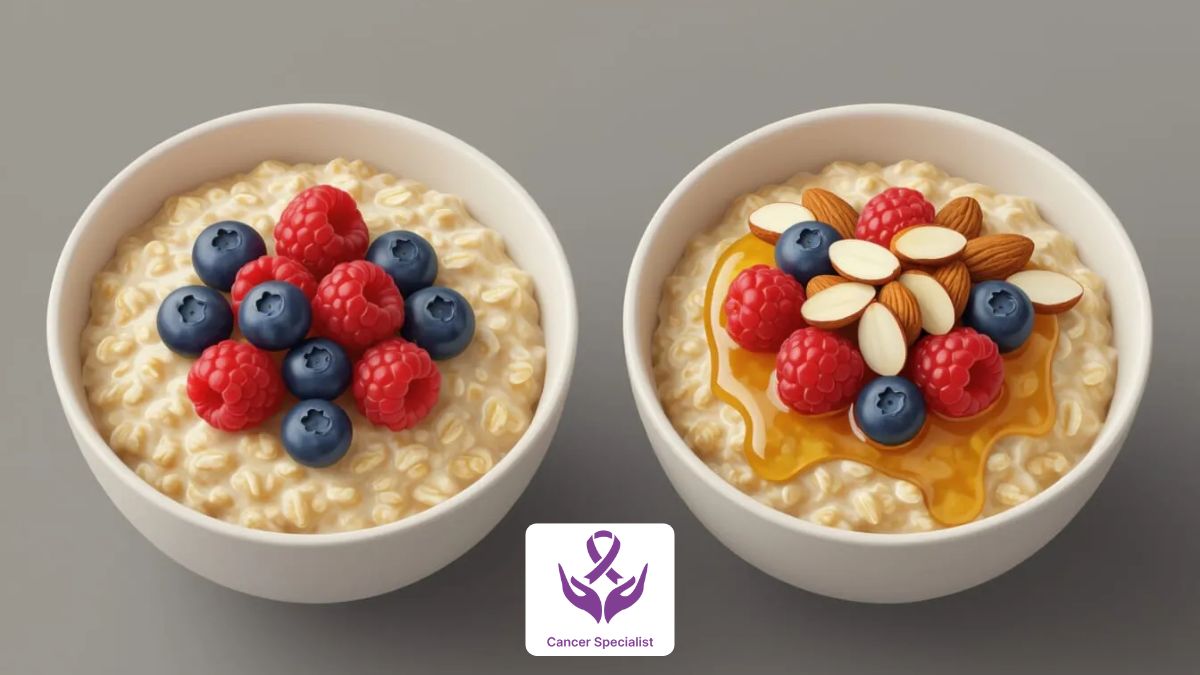
The Importance of Nutrition During Cancer Recovery
Proper nutrition during cancer treatment helps:
-
Manage treatment side effects like fatigue, constipation, and diarrhea.
-
Preserve immune function and reduce inflammation.
-
Maintain energy levels and muscle tone.
-
Support emotional well-being through enjoyable eating experiences.
According to cancer surgeon Dr. Suyash Agrawal, nutritional support is critical for patients undergoing surgery, chemotherapy, or radiation. He emphasizes that a well-nourished body tolerates treatment better and recovers faster. For example, patients with head and neck cancers often require tailored diets to address swallowing difficulties and taste alterations.
Challenges in Balancing Taste and Nutrition
Cancer treatments can alter taste perception, making food unappealing. Common issues include:
-
Metallic or bitter tastes in the mouth, reducing desire to eat.
-
Loss of appetite due to nausea or fatigue.
-
Dry mouth or mouth sores, making chewing painful.
These challenges can lead to malnutrition, worsening outcomes. However, strategic diet modifications can help overcome these barriers. As cancer surgeon Dr. Suyash Agrawal notes, personalized nutrition plans are essential for maintaining quality of life during recovery.

Practical Diet Modifications for Cancer Patients
1. Enhance Flavor Naturally
-
Use herbs and spices like ginger, turmeric, and basil to add flavor without salt or sugar. Ginger helps reduce nausea, while turmeric has anti-inflammatory properties .
-
Incorporate citrus flavors like lemon or orange to add freshness and mask metallic off-notes.
-
Experiment with umami-rich foods like tomatoes, mushrooms, and soy sauce to make meals more satisfying.
2. Improve Food Palatability
-
Adjust textures: For mouth sores, opt for soft, pureed, or blended foods. Smoothies, soups, and stews are easier to swallow.
-
Serve foods at room temperature to reduce strong odors that may trigger nausea.
-
Marinate proteins in citrus or yogurt to tenderize and add flavor.
3. Prioritize Nutrient-Dense Foods
-
Plant-based proteins: Include lentils, beans, and tofu for easy-to-digest protein.
-
Healthy fats: Avocados, nuts, and olive oil provide calories and reduce inflammation.
-
Whole grains: Oats, brown rice, and quinoa offer sustained energy and fiber.
4. Address Specific Side Effects
-
For nausea: Ginger tea, peppermint, and bland foods like crackers can help.
-
For diarrhea: Choose foods with sodium (broth) and potassium (bananas) to replenish electrolytes.
-
For constipation: Increase fiber intake with vegetables and fruits, and drink plenty of fluids.
5. Encourage Small, Frequent Meals
Instead of three large meals, suggest small, frequent snacks throughout the day. This approach reduces the burden on the digestive system and ensures steady nutrient intake.
Insights from cancer surgeon Dr. Suyash Agrawal
As a leading cancer surgeon Dr. Suyash Agrawal emphasizes the role of nutrition in surgical recovery. He advises patients to:
-
Focus on high-protein foods to aid tissue repair and immune function.
-
Stay hydrated with water, broths, and electrolyte-rich drinks.
-
Work with a dietitian to create individualized plans that address specific needs and preferences.
Dr. Agrawal’s expertise in head, neck, and breast cancers highlights the importance of tailored nutrition strategies. For instance, patients undergoing thyroid or parathyroid surgery may require calcium-rich diets, while those with gastrointestinal cancers might need easily digestible foods.
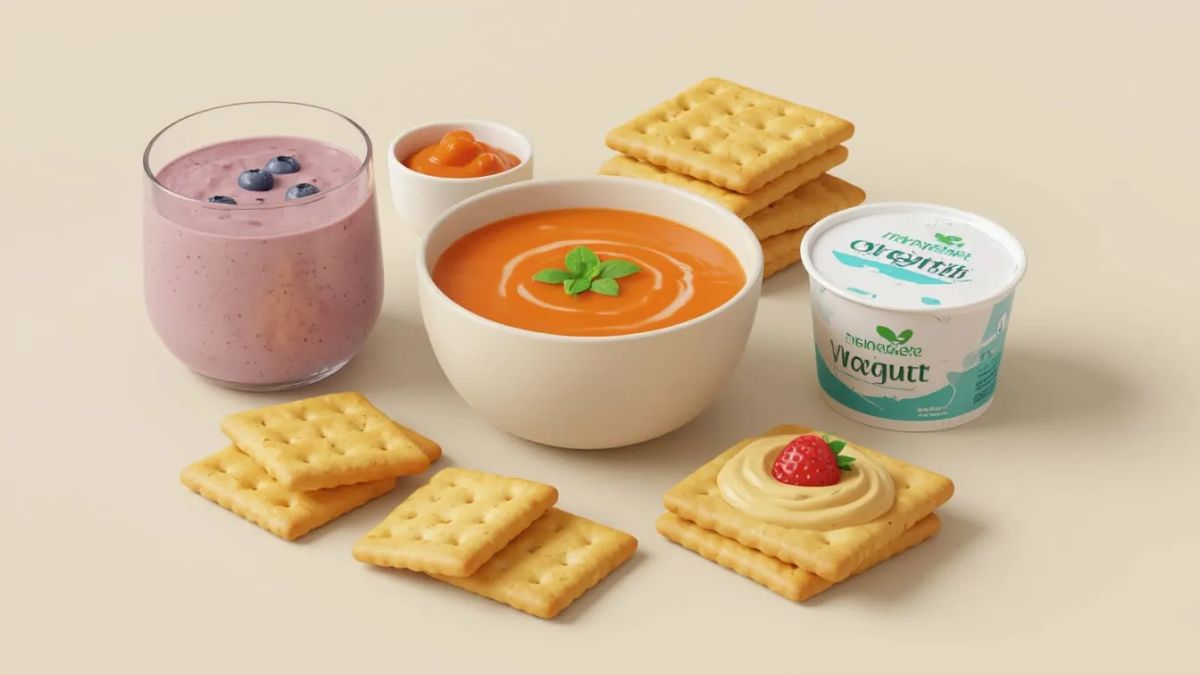
Sample Meal Ideas for Cancer Patients
-
Breakfast: Oatmeal with banana and almond butter (soft, easy to swallow).
-
Lunch: Pureed vegetable soup with lentils (nutrient-dense and flavorful).
-
Snack: Greek yogurt with honey and berries (provides protein and antioxidants).
-
Dinner: Steamed fish with ginger and lemon sauce (soft and flavorful).
Conclusion
Balancing taste and nutrition during cancer recovery is not just about meeting dietary requirements—it’s about enhancing the patient’s quality of life. By incorporating natural flavors, adjusting textures, and prioritizing nutrient-dense foods, patients can better manage side effects and support their healing journey. As emphasized by cancer surgeon Dr. Suyash Agrawal, a personalized approach to nutrition, guided by healthcare professionals, is key to successful recovery. Always consult with your oncologist or dietitian to create a plan that works for you.
